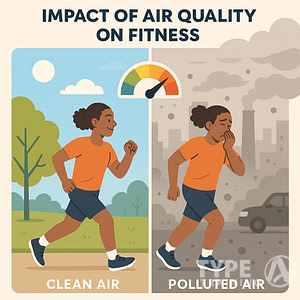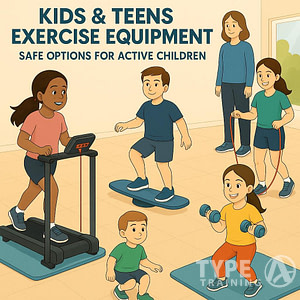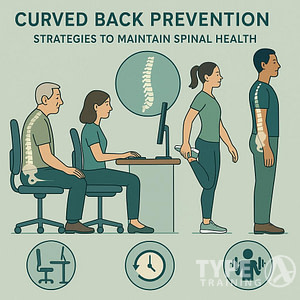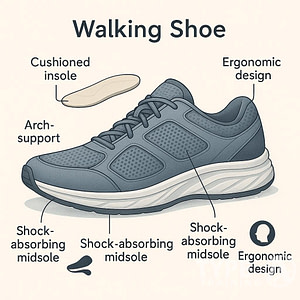Many Americans can’t envision starting their day without the enticing scent and energizing effect of a morning coffee. Yet, its role extends beyond merely kick-starting your day; it could also be a strategic addition to your pre-workout regimen. As an exercise enthusiast, you may find coffee to be a beneficial companion on your fitness journey, improving both alertness and performance. Incorporating coffee before a workout may enhance your overall experience.
It’s important to recognize that using coffee as a pre-workout booster is not universally effective for everyone. The key lies in understanding the correct amount, the best timing for consumption, and being aware of how caffeine affects your body during physical exertion. Before you make coffee an integral part of your exercise routine, consider the potential benefits and mindful of any drawbacks it may carry.
Understanding the benefits of coffee before a workout can help optimize your training sessions.
Enhanced Workout Vigor with Caffeine
Popular posts:
Caffeine Content: A key component in coffee, enhancing both mental focus and energy.
- Natural Source: Coffee serves as a natural pre-workout stimulant.
- System Impact: Targets your nervous system to heighten alertness and reduce fatigue.
Personal Tolerance: Varies; adjust intake of coffee pre-exercise accordingly for comfort and effect.
Performance Boost: Research indicates coffee before a workout can improve exercise outcomes.
Including coffee before a workout can lead to enhanced exercise results.
- Awareness: Heightens concentration, aiding performance.
- Energy Levels: Can elevate the energy you feel, potentially lengthening workout duration.
Note: Monitor caffeine amounts to align with individual sensitivity and health guidelines.
For many, consuming coffee before a workout is a well-known strategy to improve performance.
Advantages of Coffee Before a Workout
Sharpened Mental Focus
Taking advantage of coffee’s caffeine content prior to engaging in physical activity can contribute to heightened awareness. This may enhance the connection between your brain and muscles, potentially leading to more precise and efficient movements during your exercise routine.
- Concentration: Fine-tunes your ability to concentrate on the task at hand
- Muscle Coordination: Improves the communication between your brain and muscles
Elevated Energy Sensation
Caffeine triggers adrenaline release, which might feel like an energy surge, aiding you during demanding workouts. It’s essential to eat properly since actual energy comes from nutrients, and caffeine alone does not provide these.
- Adrenaline Production: Initiates a surge of the ‘fight-or-flight’ hormone
- Workout Intensity: May help you power through more vigorous sessions
Enhancement of Workout Efficacy
Caffeine consumption can make exercising seem less strenuous, possibly leading to improved workout results and assisting in achieving fitness aspirations. Moderate caffeine intake before exercise has been associated with increased endurance performance.
When evaluating your workout routine, consider how coffee before a workout can contribute to your success.
- Endurance: Supports sustained physical activity
- Perceived Effort: May lower how hard the workout feels
Reduction in Discomfort Perception
Caffeine interacts with adenosine receptors in your body, potentially reducing how much discomfort you feel during strenuous workouts. This might allow for extended exercise duration or increased intensity.
-
- Pain Perception: Caffeine could limit the signaling of pain to the brain
- Workout Duration: May help you sustain longer periods of exercise without significant discomfort
Many athletes have discovered that coffee before a workout can help sustain their energy levels.
Incorporate a dose of caffeine from coffee to potentially sharpen your mental focus, experience a boost in your energy perception, improve your overall physical performance, and reduce pain sensations during your fitness routine. Remember, a balanced diet paired with coffee can be a strategic approach to maximize your workout potential.
Ultimately, coffee before a workout can play a key role in achieving your fitness goals.
Optimal Coffee Intake for Exercise Performance
Understanding the timing for consuming coffee before a workout can maximize performance benefits.
Considering Your Coffee Choice
Determining the right amount of coffee you should drink before hitting the gym isn’t a one-size-fits-all answer. On average, aiming for 3–6 milligrams of caffeine per kilogram of your body weight about an hour in advance can be beneficial. That translates to 2–4 cups of brewed coffee for someone who weighs 70 kilograms, considering a single 8-ounce cup provides roughly 95 milligrams of caffeine.
Listen to how your body reacts. Everyone’s tolerance differs, and while you might be fine with two cups, others might feel the desired effect with less. Begin with a small quantity and adjust according to your body’s response. Immediate signs that you should reduce your intake include feeling jittery, a rapid heartbeat, or digestive discomfort.
Brewing up an excess won’t further enhance your workout performance beyond these advised levels, so keep it within this range. When selecting your coffee, note the following points to tailor your pre-workout caffeine ritual to your needs:
Choosing the right coffee before a workout is essential for achieving optimal results.
- Type of Coffee: Whether you prefer your coffee served hot or cold, black or with a splash of milk, it’s the caffeine that matters most for exercise stimulation. Yet, be mindful as additional ingredients like sugar or dairy might not agree with your stomach during physical exertion.
- Supplements and Additives: Choose your additives wisely. Adding too much sugar or high-calorie syrups can increase the overall calorie count, which might not align with your fitness goals.
- Brewing Method: Whether it’s drip, French press, or an espresso shot, the brewing technique has minimal impact on the effectiveness of your pre-workout coffee. Choose what you prefer taste-wise.
- Decaffeinated Coffee: For the caffeine benefits, bypass decaf. It won’t offer the performance boost you’re looking for since the active ingredient for enhancing your workout is missing.
Remember, while coffee can be a useful tool to enhance your workout, it’s essential to tailor your intake to your individual needs and observe how your body responds.
Consider how your choice of coffee before a workout aligns with your exercise regimen.
Optimal Timing for Pre-Exercise Coffee
When you decide to sip a coffee before starting your workout, timing is crucial to maximize its effectiveness. Aim to drink it about 60 minutes in advance to allow the caffeine peak to synchronize with your exercise. This ensures you’ll experience its full potential for increasing alertness and endurance as you train.
To fully experience the benefits of caffeine, enjoy coffee before a workout at the right time.
Keep the following points in mind:
- Caffeine Duration: Caffeine lingers in your body for hours, so if your workout is in the evening, it’s best to skip the pre-exercise coffee to avoid disrupting your sleep.
- Hydration Status: While coffee has a mild diuretic effect, it’s generally not dehydrating. However, ensure you’re well-hydrated beforehand because both caffeine and exercise increase fluid loss.
- Nutritional Timing: For those who prefer not to exercise on an empty stomach, pair your coffee with a snack rich in carbohydrates, such as a piece of fruit or whole grain toast. This will provide you with additional energy and enhance the caffeine’s performance benefits.
In summary, enjoy your coffee an hour before your workout, stay hydrated, and consider coupling it with a small, carb-focused snack to fuel your session.
Pairing coffee before a workout with proper hydration is crucial for effectiveness.
Assessing the Downsides of Caffeine Prior to Exercising
Assess how caffeine, particularly coffee before a workout, impacts your performance and recovery.
Gastrointestinal Discomfort
Caffeine might ignite your digestive system, leading to stomach issues when you’re most active. To dodge such discomfort, try tweaking the timing of how soon before exercising you drink coffee. Remember, if you’re planning intense activity, ensure you’re near a bathroom if your stomach starts to protest.
Interruption of Sleep
Exercise later in the day coupled with caffeine intake might keep you awake. Research indicates caffeine can disrupt sleep even when consumed six hours before bedtime. If your exercise schedule is in the evening, it’d be wise to cut down on caffeine to help ensure a good night’s rest.
Individual Responses to Caffeine
The majority of adults can handle a moderate amount of caffeine daily, but personal sensitivity varies. Caffeine might cause some individuals to feel jittery or experience a racing heart. Women who are pregnant should limit caffeine to no more than 200 milligrams daily. Start with small quantities if you’re uncertain of how your body reacts and, when in doubt, consult a healthcare professional.
Personal responses to coffee before a workout can vary; be mindful of how it affects you.
| Common Reactions | Details |
|---|---|
| Jitters | Shaking or trembling that may affect your concentration. |
| Irritability | You might feel more agitated than usual. |
| Heightened |
Monitor your levels, especially if they’re a concern for you. |
| Tremors | Noticeable in your hands, these can affect your performance. |
| Irregular Heart Rate | Be cautious and monitor how your heart feels during workouts. |
Key Insights on Pre-Workout Coffee Intake
Incorporating coffee before your exercise routine might just be the boost you need. For an optimal experience, consider consuming 3-6 milligrams of caffeine per kilogram of your body weight around 60 minutes prior to exercising. This could heighten your focus and enhance your athletic performance, giving you that extra edge.
Utilizing coffee before a workout might just give you the extra edge needed for a successful session.
Be vigilant of how your body responds to caffeine, as individual reactions can vary. You may experience improved alertness or, conversely, certain side effects such as gastrointestinal discomfort or disruptions to your sleep patterns. To personalize your pre-workout caffeine use:
- Monitor your body: Pay attention to any adverse reactions post-coffee consumption.
- Customize your intake: Adjust the amount based on your body’s tolerance.
- Seek professional advice: Don’t hesitate to consult a healthcare provider or a nutrition expert, especially for sports nutrition strategies tailored to your needs.
Remember, moderation is key. The aim is to support your fitness goals safely and effectively while considering your overall health and wellness.
Effectively incorporating coffee before a workout can lead to significant performance gains.
Common Questions Regarding Coffee Before a Workout
Benefits of Coffee Before Exercise
-
- Elevates Performance: You may experience improved alertness, concentration, and overall sports performance.
- Increased Endurance: Caffeine can help you feel less tired and extend the duration of your workout.
Understanding the benefits of coffee before a workout will help you tailor your nutrition strategy.
Potential Downsides of Pre-Exercise Coffee Consumption
- Dehydration Risk: Since coffee is a diuretic, it might lead to fluid loss.
- Heart Rate Increase: Some individuals may notice a spike in heart rate.
Coffee’s Role in Fat Oxidation
-
- Metabolic Boost: Caffeine can increase metabolism, potentially leading to greater fat burn.
- Energy Source Shift: Your body may use fat as an energy source more when caffeine is present.
Maximizing the benefits of coffee before a workout can enhance your overall fitness journey.
Optimal Coffee Consumption for Workouts
- Timing: Have your coffee around 30-60 minutes before starting exercise for peak effectiveness.
- Dosage: A general guideline is 3-6 mg of caffeine per kg of body weight.
Impact of Coffee Temperature on Pre-Workout Effectiveness
The impact of coffee before a workout should not be underestimated in your training plan.
- Personal Preference: The temperature typically does not affect the benefits, so choose what suits you best.
Evening Coffee Before Nighttime Gym Sessions
-
- Sleep Disruption: Be cautious as caffeine can interfere with sleep, especially if consumed in the evening.
In conclusion, coffee before a workout can be a valuable addition to your exercise routine.











